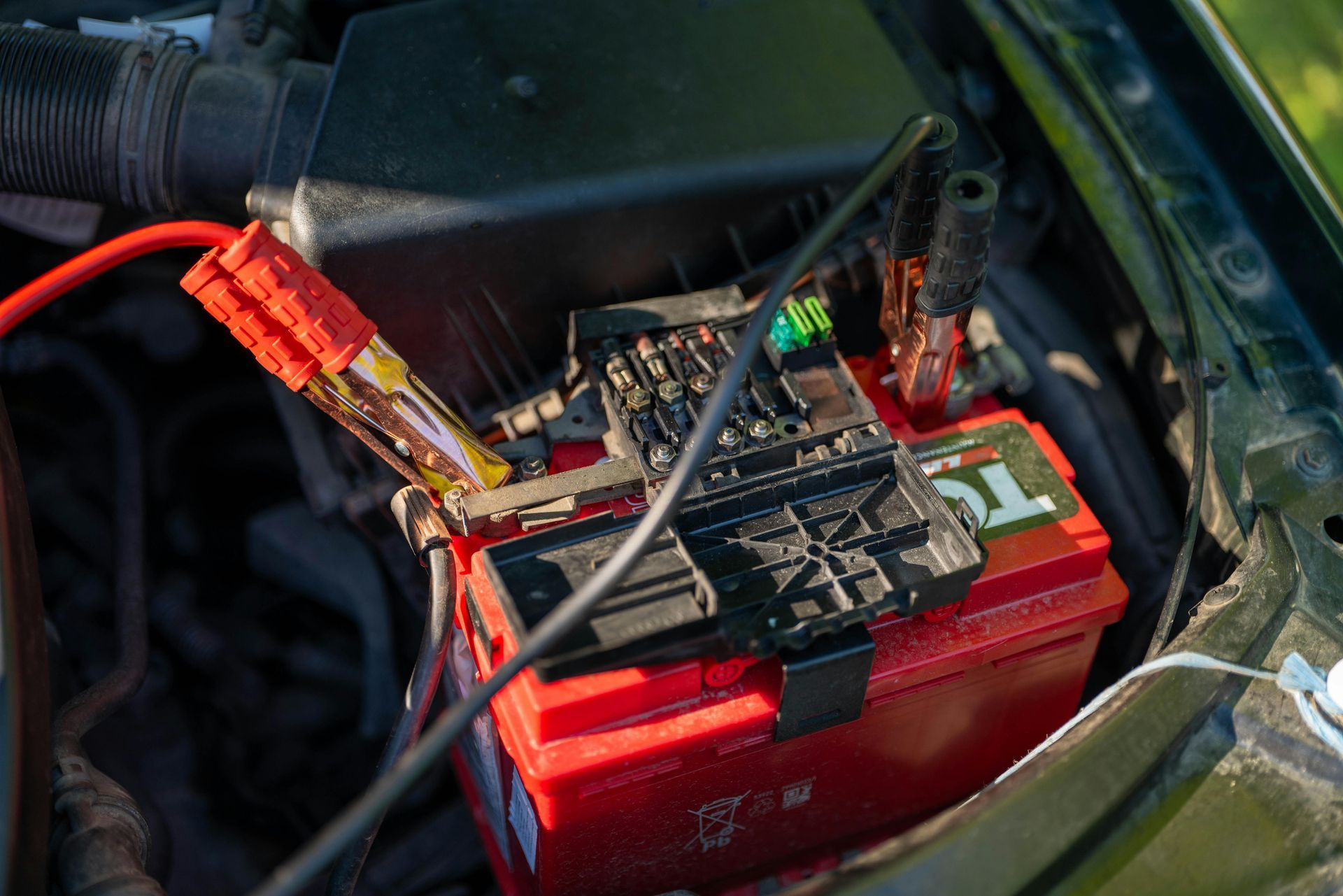Gas to Electric Vehicle Conversions: A Guide for Drivers
Auto Shops Located in: Chapel Hill, Durham, Taleigh, Apex, and Cary North Carolina

As gas prices rise and EV charging stations become more accessible, electric vehicles increase in popularity. Unfortunately, the increased demand and limited supply have also made EV prices spike. As a result, drivers have started taking matters into their own hands—converting their gas-powered vehicles into electric.
How Do Electric Vehicle Conversions Work?
There are a few different ways to convert a vehicle. However, the fundamentals are all the same:
- Initial Evaluation: First, an expert evaluates the car to ensure it is compatible with the EV conversion process.
- Out With The Old: Next, they will remove the gas-powered engine and all of its supporting components.
- In With The New: Then, mechanics begin installing the EV motor, battery, connectors, and adaptors.
- New Accommodations: Depending on your vehicle, a few additional accommodations might be needed. For example, many car HVAC systems run on gas from the fuel system. In some cases, mechanics can connect this system to your battery. In other cases, you might need a new independent comfort system.
How Much Do Vehicle Conversions Cost?
The cost of a vehicle conversion can vary starkly—with numbers ranging from a few thousand to well into six figures.
However, the actual cost of a vehicle conversion will depend on a variety of factors, including your car’s make, model, and the electric vehicle conversion equipment it requires. You can visit a local mechanic (like Chapel Hill Tire) for a custom estimate.
Can Any Gas-Powered Car be Converted into EV?
You might be wondering, “Can I turn just any car into an EV?” Technically, any vehicle could be converted; however, not every vehicle is well suited for this switch. The more suitable your car is for conversion, the easier and more affordable this project will be. Perhaps most importantly, the outcome will depend on your vehicle’s suitability. For example, would it be worth it to convert your vehicle if the end result had less than 100 miles of electric range? Here are a few examples of cars that are suitable for conversion:
- Automatic transmission: Manual transmissions often require gas power sources, as they would quickly drain your EV battery. Manual cars also have heavier engine components, like larger transmissions and axles, that will add weight and reduce your driving range.
- Lightweight vehicles: Heavier vehicles will also require more power and will quickly drain out your EV battery. Lightweight yet sturdy vehicles will provide the best outcomes.
- Plenty of space: Retrofitting a gas-powered car with an EV system will require some extra room. Before deciding on a vehicle conversion, it is good to do some research on how suitable your vehicle is for transformation.
- Older vehicles: The most straightforward and valuable EV conversions come from classic cars. These engines are much less complicated, making the conversion processes easier. At the end of the transformation, you have a fully re-engineered classic that can hit the road without breaking the bank.
Gas to Electric Conversions: Is the Cost Worth It?
Vehicle conversions are changing the electric vehicle landscape. However, not everyone will find out the cost of vehicle conversion is worth it. Here are a few examples of EV conversions that are a good idea— and when you might opt to trade in your car for an EV instead.
Your Car Needs A New Engine: Worth It
So you’ve decided to replace your engine? Engine replacement can be costly, but if you’ve already decided on incurring these costs, you might as well upgrade to an electric vehicle system.
You Have an Older Vehicle Still in Good Shape: Likely Worth It
Whether you’re fixing up an old car for sentimental value, a hobby, or simply for the fun of it, electric vehicle conversion is an easy way to give new life to an old car. For classic cars or cars that hold sentimental value, the conversion process will undoubtedly be worth it.
However, if the market value of your vehicle is low, you might not get your money back after the conversion process. This is why the conversion process is prevalent for classic cars.
Additionally, if your vehicle is newer, engine issues can likely be covered under warranty. In these cases, it might be free to have your engine repaired instead of paying thousands to buy and retrofit an EV system.
You’re Ready To Save Money On Gas: Potentially Worth It
Electric vehicle conversion can be a pretty penny, but it saves you money every time you get behind the wheel. On average, EV drivers can save close to $1,000 each year on gas. If you’re going to be driving your vehicle for a long time, the savings will certainly add up. However, you will likely need to drive your car for quite some time to make up the costs for even the most affordable EV conversions.
Local EV Experts at Chapel Hill Tire
Our mechanics are always up to date with the latest vehicle practices. We are electric vehicle specialists, and we are willing to work with drivers on almost any project.
We proudly serve the greater Triangle area with 10 locations across Cary, Apex, Raleigh, Chapel Hill, Carrboro, and Durham. Our professional mechanics also commonly serve surrounding communities, including Knightdale, Pittsboro, Wake Forest, Hillsborough, Morrisville, and beyond. We invite you to make an appointment, browse our coupons, or give us a call to get started today!















